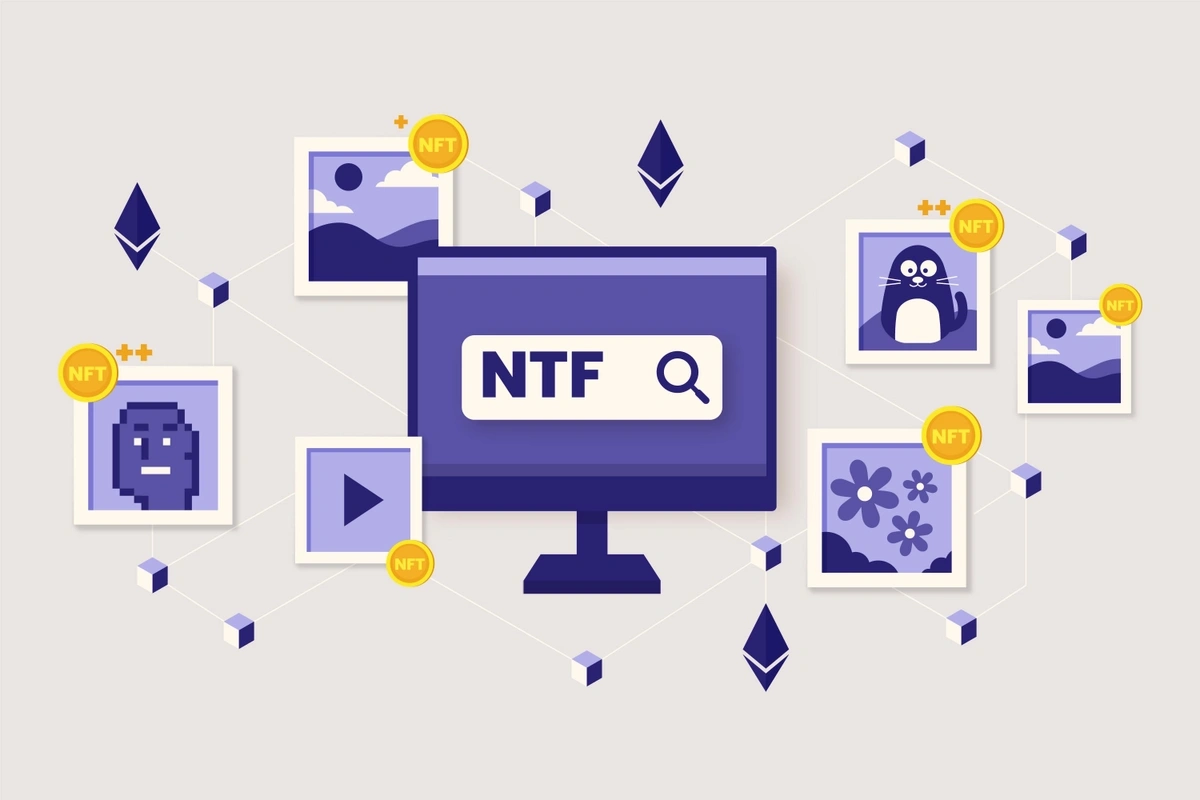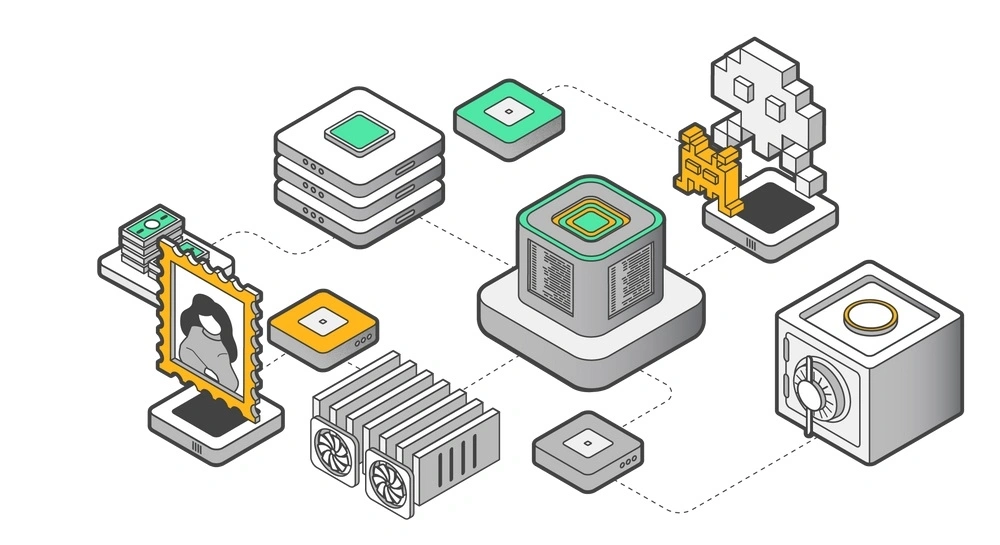In today's digital world, blockchain technology continues to revolutionize various sectors. Amidst its array of features, one, in particular, has emerged as a game-changer: smart contracts. From enabling secure, peer-to-peer transactions to automating intricate processes, smart contracts have begun to redefine industries. Let's delve into what they are, their types, and how they function in the blockchain.
An Introduction to Smart Contracts
Smart Contracts Explained – Key Takeaways
- Smart contracts automate transactions and contractual obligations.
- They're foundational for various applications in blockchain, like DeFi and dApps.
- Smart contracts provide significant benefits, such as enhanced security, cost efficiency, and automation of services.
- Multiple cryptocurrencies, including Ethereum and Bitcoin, support smart contracts.
- Understanding how smart contracts work provides insight into their vast potential and applications.
What Are Smart Contracts?
To explain how smart contracts work in simple terms, it is a self-executing contract with the agreement between buyer and seller directly written into code. The code and the agreements contained within are present across a decentralized blockchain network. These contracts permit trusted transactions and agreements to be carried out among disparate, anonymous parties without the need for a central authority, legal system, or external enforcement mechanism.
The concept of a "smart contract" was initially introduced in a white paper authored by Nick Szabo in 1996, well before the emergence of Bitcoin. However, it wasn't until the rise of blockchain technology, with Ethereum being a notable example, that the smart contract concept found practical implementation. Through blockchain's innovative infrastructure, particularly exemplified by Ethereum, smart contracts gained the platform they needed to be realized in real-world scenarios.
Definition and Characteristics of Smart Contracts
- Autonomous: Once deployed, they act independently.
- Self-verifying: They digitally facilitate, verify, and enforce the performance of a contract.
- Auto-executable: They execute themselves based on predefined rules.
Importance of Smart Contracts In the Context of the Crypto Ecosystem
- They provide the backbone for Decentralized Applications (dApps) and Decentralized Autonomous Organizations (DAOs).
- They form the basis for complex interactions like Decentralized Finance (DeFi) transactions, tokenization, and Initial Coin Offerings (ICOs).
How Does a Smart Contract Work?
Understanding the functioning of a smart contract involves explaining its lifecycle:
1. Creation: The contract is written in a programming language (like Solidity or Vyper) and deployed to the blockchain. It contains the terms of the agreement and the rules of execution.
2. Validation: Nodes in the network validate the contract, ensuring that it adheres to the rules of the blockchain protocol.
3. Execution: The contract is triggered by a transaction or another contract. This can be an action like a user sending funds to the contract.
4. Settlement: The contract executes as per its rules, automatically enforcing the terms of the agreement, and the blockchain state is updated. Additionally, "gas fees" (transaction fees in Ethereum) are vital to the smart contract's operation, compensating for the computational energy required.
Benefits Smart Contracts Provide to Crypto
Smart contracts hold immense potential in a variety of domains. In addition to security and cost-saving aspects, they also provide:
Trustless transactions: Smart contracts can execute transactions based on predefined conditions, eliminating the need for trust among parties.
Transparency: All transactions are transparent and can be audited, fostering trust and reducing disputes.
Speed and efficiency: By automating processes that usually require manual intervention, smart contracts can significantly increase crypto transaction speeds.
Mutual compatibility: Smart contracts can work with one another to make complex operations possible.
Examples of Cryptocurrencies That Support Smart Contracts
The implementation of smart contracts isn't limited to a single cryptocurrency. Notable examples include:
Ethereum: Known as the pioneer platform for smart contracts, Ethereum allows developers to write their own scripts and create diverse applications.
Bitcoin: Though not inherently capable, with Rootstock (RSK), Bitcoin can execute smart contracts. RSK is a smart contract platform connected to the Bitcoin blockchain through sidechain technology.
Cardano: Offers a unique smart contract framework named Ouroboros, focused on scalability and security.
Others: Tezos, with its self-amending cryptographic ledger, offers flexibility in protocol upgrades and supports smart contracts. EOS aims for more scalability and usability and provides an environment for developing decentralized applications. NEO is designed to digitize assets using smart contracts, focusing on automating the management of digital assets.
Different Types of Smart Contracts Explained
The different types of smart contracts cater to varied requirements and use cases, highlights including:
- Deterministic and non-deterministic contracts: The former produces the same output from the same input, while the latter's results can vary. An example of a deterministic contract would be an ERC20 token transfer on Ethereum.
- Stateful and stateless contracts: Stateful contracts retain information between executions, whereas stateless contracts don't. For example, a contract managing an on-chain election would be stateful.
- Contingent and non-contingent contracts: Contingent contracts depend on specific conditions, while non-contingent ones don't. An insurance smart contract is an example of a contingent contract.
For a clear explanation of smart contract types, consider these examples:
Smart Contract Type Real-World Example Deterministic Initial Coin Offerings (ICOs) Non-Deterministic Prediction markets Stateful Decentralized Exchanges (DEXs) Stateless Simple token transfer Contingent Insurance dApps Non-Contingent Token Sales
The Future of Smart Contracts
Beyond the crypto-sphere, multiple types of smart contracts could find utility in various sectors like real estate, supply chain, and healthcare. The integration of AI with smart contracts and the impact of quantum computing are promising future developments. Realistically, you should expect smart contracts to become a crucial element in everyday life.
Challenges and Limitations of Smart Contracts
While smart contracts offer transformative potential, they do face notable challenges:
Technical Challenges
Due to their immutable nature, any error in the code becomes permanent, and the only way to rectify this is to create a new contract. Moreover, upgradeability is a challenge, as contracts are meant to be immutable.
Legal and Regulatory Challenges
Smart contracts currently exist in a legal gray area. In many jurisdictions, their legal status remains undefined. In some cases, there might be conflicts between the automated execution of smart contracts and existing legal norms.
Security Challenges
All types of smart contracts are susceptible to attacks. The most notorious incident was the attack on the DAO in 2016, where a hacker exploited a loophole in the smart contract, causing a loss of around $60 million at the time.
In Summary: Smart Contracts Blockchain Explained
In conclusion, smart contracts offer a revolutionary approach to conducting secure, decentralized transactions. While they face certain challenges, the future of smart contracts is bright, promising a more automated and transparent digital world. As we traverse this exciting journey, smart contracts are a vital tool in minimizing trust and enhancing security.





